I am a person of many privileges. I was born and raised in Nova Scotia to loving parents who provided me with all of my needs and some of my wants. Most people in my circle looked like me. Growing up, we never needed to consider issues of class or race, and I never experienced what it felt like to be judged because of some attribute that I could not control. I am white. That is a fact. By extension this means I experienced my world as somebody who fit into it; who knew that I belonged and had a place.
And yet in spite of (or perhaps because of?) my upbringing I have cared deeply about equal treatment for people of all races, ethnicities, sexual orientations and belief systems. I read widely the works of champions of social justice such as “Letter from a Birmingham Jail” by Martin Luther King Jr. and “I Write What I Like” by South African anti-apartheid activist Steve Biko. I intentionally sought out relationships with people who were different from me.
As a first-year student at Acadia, I saw a table in the cafeteria occupied by students from the Caribbean. They looked like they were having fun; you could hear their laughter ripple across meal hall. How I wanted to be part of them! After watching them for 3 days, I decided during lunch to pick up my tray and plunk myself down at the middle of their table. It was either going to go well, or very badly. Crossing a line, even the ones unspoken of, can be risky. It can feel uncomfortable. Even scary. My gamble paid off, and I established friendships with people I met at that table which extend to this day, more than 20 years later. At that table I learned to get comfortable talking about race. I learned to listen. I learned to relate, to connect. I learned to be comfortable being the only one in the group who looked like me.
When I talk about privilege, I’m now aware of the privileges I enjoy because of my race, my class, my nationality. However, it is living cross-culturally for more than 20 years and sharing my most intimate life experiences with people from across the African diaspora, that has been my greatest privilege.
After graduating from Acadia University, I moved to South Africa. Within two years of my graduation, I married my soulmate, a young man of Zulu origin. We danced down the aisle to the voices of his elders singing a song that told of the exploits of his ancestors. Their pride in their history, their culture, was palpable. Two years after that, we started our family. We adopted two children in the same week. Bijou was originally from the Democratic Republic of Congo, and was 15 years of age when she came to live with us. She was not related to us by blood, but we loved her as if she were. Nhlanhla was my husband’s youngest brother. He was 7 years of age when we adopted him, after the passing of their mother. He was obsessed with housework and spoke no English. He was this little boy with a big smile and mischievous twinkly eyes and a mop. Over the next 6 years we added two more biological children to the mix and our family was complete.
Our first days as a family were challenging ones. In addition to the challenges of having 3 different home languages in our household, poor educational foundations for both adopted children, grief and childhood trauma, we were living in South Africa as a mixed family. South Africa, that beautiful, conflicted nation that has utterly captured my heart. We experienced the beauty of South Africans as they embraced us, and the ugliness of racism as others rejected us. We knew that racism could be both overt and covert, and we had felt its sting. But we were determined to overcome it with our love and our story.
We did not leave South Africa for the reasons that people usually leave. We didn’t run away from the crime, or the corruption, though these are of concern to us. We were not seeking better economic opportunities in a developed nation. We came to Canada simply to be closer to my Canadian parents. And we wanted to give Nhlanhla the chance to hold a high school diploma, something that was not a possibility for him in South Africa.
We knew that racism existed in every society. I have friends who are African Nova Scotians and I was aware of the challenges still faced by these communities in our province. Some thought we were making a mistake by not moving into a historically African-Nova Scotian community. However, we had found the perfect house in Pictou, NS, and wanted to live where we chose. We were under no illusions, but we did expect that after the civil rights gains of the past 60 years, after the courageous battles fought by people of colour here in Nova Scotia and across the country, that racism would be hiding underground. We expected it to be concealed. We did not expect it to impact our family as it did.
On September 19th at approximately 3:30 pm, our now 21-year-old son Nhlanhla was shot in the back with a high velocity nail gun by a co-worker on the construction site where he worked here in Pictou County. The 3.5 inch nail punctured his lung. After he was shot, when he was lying on the ground screaming, the same co-worker pulled the nail from his back, creating a slow leak from his lungs to the cavity next to his chest wall. His boss then drove him home to the rural community where he now lives. By the time he received medical attention, 1.5 hours had passed. With each breath, the cavity next to his chest wall was filling up with air, and his lung was proportionally collapsing. The doctor said by the time the chest tube was inserted to release the air, his lung was 25% collapsed. He would be in hospital for 4 days.
He had started that job 3 weeks prior to this incident, and for the entire time of his employment was subjected to race-based bullying by the same co-worker who shot him. It has been widely reported in the media that he was called a nickname by the crew that rhymes with the “n-word”. His co-workers refused to try to pronounce his real name, or even use the shortened version that he commonly goes by, which is “N.H.” The same co-worker stapled his jacket to the stairwell, and the other guys on the crew laughed about it. My son alleges that the shooter threw nails at him while he was working, hit the steel toe of his boot with a hammer, and numerous times threated to puncture his hand with the staple gun. But perhaps the most overt example of racism prior to being shot was when this same co-worker made a joke (and I use that term loosely) about every white person deserving to own a black person.
Did he tell us this was going on? No. Did he report it to his boss? No. He told himself perhaps it was some kind of initiation; that if he kept his head down and kept working, it would pass. The guy would get tired of bullying him. Or he’d find a new victim. He thought that if he caused trouble for a more senior person on the crew, then as a new employee he could lose his job. He thought that because his boss had laughed about his jacket being stapled to the stairwell, because he had witnessed at least some of the bullying behaviour and laughed about it, that his boss would not act in his interest. So, he said nothing. He just waited for it to pass. But it didn’t pass. This decision nearly cost him his life.
The blatant, in-your-face kind of racism my son endured is something we did not expect. The fact that we could have lost him in this violent act has rocked us to our core. To think that there are people in our communities who hate to such an extent that they can injure or even kill someone you love, here in Nova Scotia in 2018, is a painful realization and one that surprises us. What has been almost as surprising and painful is the total lack of empathy that we have received from my son’s former employer. However, what has warmed our hearts and carried us is the outpouring of love and support that we have received from people in our community, our province, across the country and because of the nature of our family, from around the world. We know that this act is not reflective of who we are as Nova Scotians and Canadians.
Still, there are lessons to be learned. And since I can only speak for myself, here is what I personally am taking away from this experience. To my children, and to all young people of colour, I will say this. Please stop putting your heads down and getting on with it. Nobody deserves the kind of treatment my son received. It will not get better on its own. It will only get better if we make it better together. And to make it better, we as parents and allies, we as your community need to know what you’re going through. Find someone safe to talk to, and talk. Get advice if you need to. Plan your next move if you can. But don’t keep silent. You do not have to give racist individuals a probation period within which to abuse you before you react and respond. You are worth more than this.
To people who look like me, to other white Nova Scotians and Canadians who are intent on stamping out racism and all forms of discrimination in our schools, our work places, or churches and communities, I humbly offer the following advice.
- Listen. Be a safe person for people of colour, and indeed all those experiencing marginalization and oppression, to talk to. In the context of relationships, learn about their lives. When they say they are experiencing discrimination, hear them. I mean, really hear them. Too many times as white people we don’t even let a person finish telling their story before we get defensive. “Oh no, that person was just being a jerk. It’s not necessarily racism.” And my favourite: “Why does everything have to be about race?” Black people have been black for their whole lives. They know their own experiences, and they are not telling you their story because they are holding you personally responsible for the actions of all white people. They might be looking for someone to help carry the burden, to show some empathy. Be that person.
- Do no harm. This one is simple. Don’t be that person who tells racist jokes, who mimics the accents of non-native English speakers, who puts out into the world discriminatory statements against one or another group of people. Let no such words cross your lips.
- Do not tolerate discrimination of any kind in your circle. I remember hearing a story about Maya Angelou hosting a dinner party for some of her closest friends. At this party, someone made a derogatory remark about members of the LGBTQ+ community. She overheard the remark, stopped her conversation, commanded the attention of her guests and politely asked that person to leave her home. We have to stop allowing people in our lives, our family members, colleagues, and friends to say and do things that discriminate against others. It will be awkward. It will be uncomfortable. You might not be able to ask Grandma or Uncle Frank to leave your home, but you can firmly assert that such sentiments are not welcome in your home or in your presence.
I wonder how the story might have turned out had someone on Nhlanhla’s crew said to the Accused, “Hey, why don’t you leave the kid alone?” What if they’d come up to Nhlanhla and said, “You know man, you don’t have to accept this kind of treatment. Let’s do something about it together.” What if someone had shown him some compassion or solidarity? Or even in the aftermath, some empathy? It would feel different for us.
It is in our power to undertake small but important actions that can stamp out racism and discrimination. And for this reason, we have hope. I leave you with a quote from Martin Luther King Jr., who said, “Power without love is reckless and abusive, and love without power is sentimental and anaemic. Power at its best is love implementing the demands of justice, and justice at its best is power correcting everything that stands against love.”
Stacey Dlamini is a graduate of Acadia University’s Class of 2000

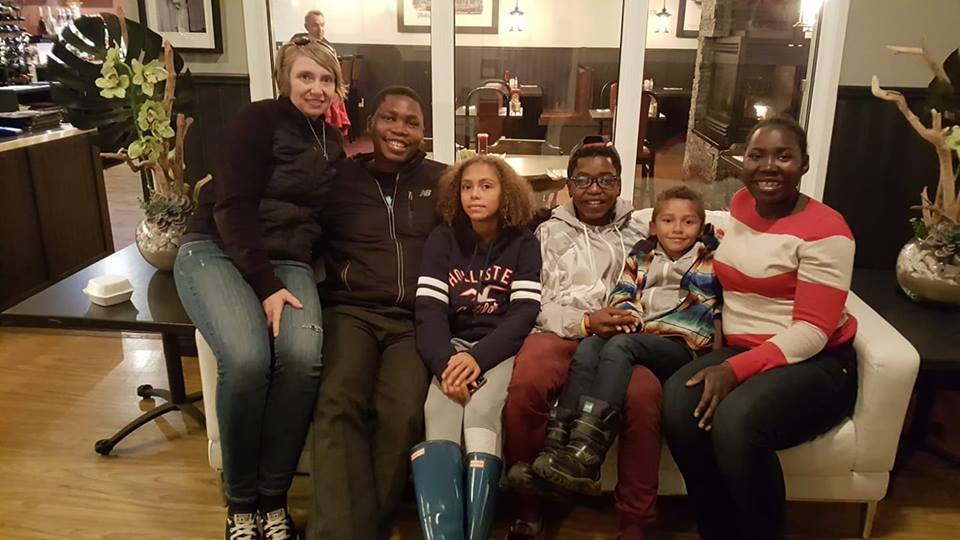
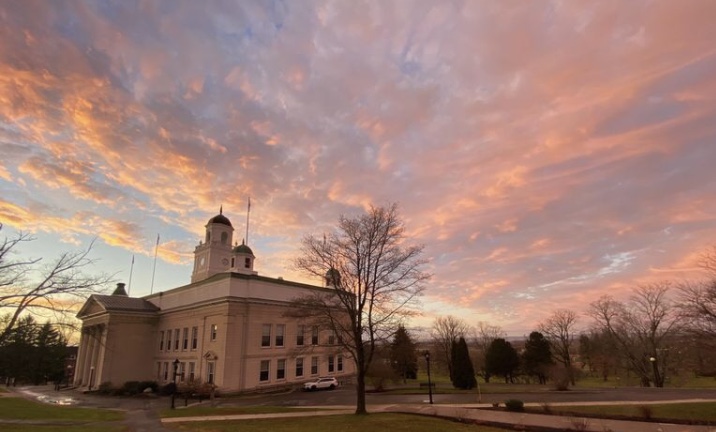
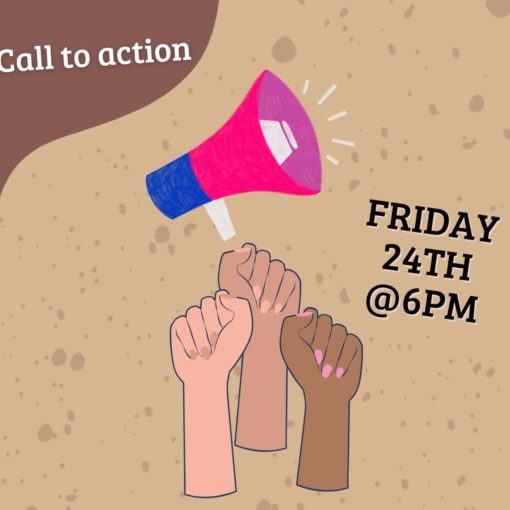
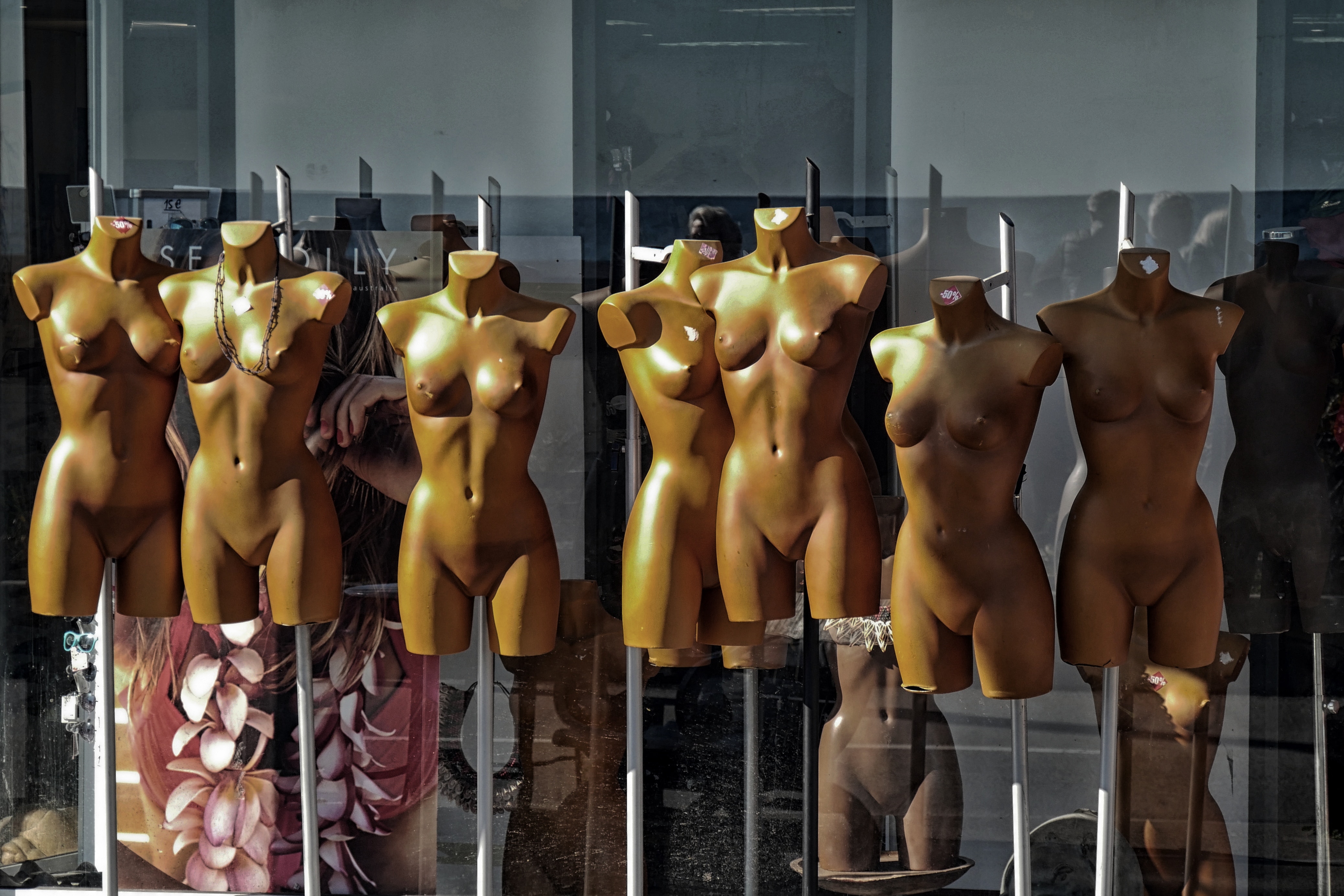
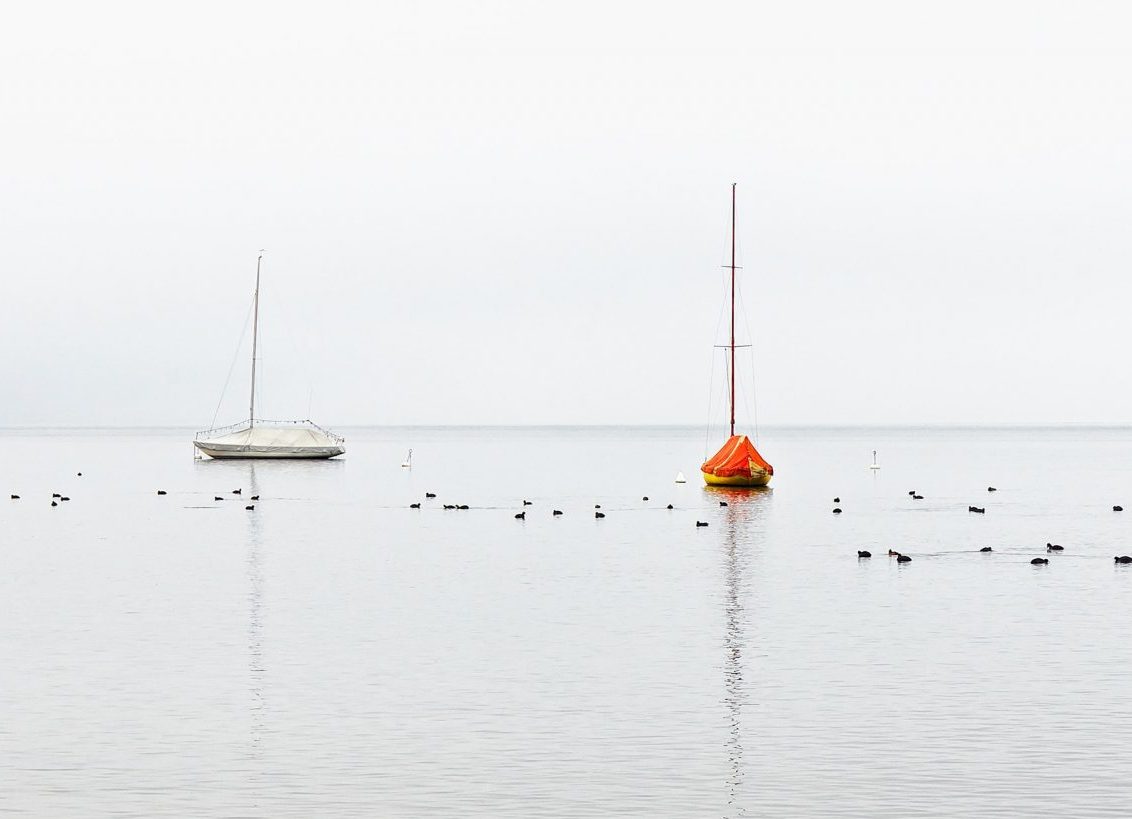
We all need to do our part to stop this and silence the ignorance of others. We are all people – brothers, sisters on the inside regardless of what shade our skin happens to be.
It is heart breaking to hear your story. But it is also a sobering shot of reality. I grew up in Southwestern Nova Scotia in the “50’s & ’60’s. I am white. As a child, I can vividly remember crossing the street to avoid contact with black persons who happened to come into the downtown from their community beyond the town limits. it was an insidious absorption of the prevalent adult attitude of fear at that time. My mind began to change as I entered high school and – especially – witnessing the Civil Rights Movement in the U.S. as I grew to a young adult. I began to have friendships across the racial spectrum as well as all varieties of personal orientations. I have found the most useful attitude to maintain is one that continually invites new and thoughtful considerations that supports growth and outreach, empathy and compassion. We are all so singularly special…no matter the “make, model or design”. It is not enough to simply “talk-the-talk”( Words)…it is only of real value when we “walk-the-walk” (Actions). Thanks for sharing your story!
I have taken the time to read and follow you young sons story which happened in Pictou County, Nova Scotia. It is very, very sad and whoever that Employer was he should have stopped this abuse immediately. You son must have been scared to death of all of them as they sound like a pretty racist bunch who work at that place.
I am so glad that your son is alright, thank God that his injury did not physically harm his lungs worse. Whoever hurt him must be held responsible and must be punished. We cannot stand silent in the Province of Nova Scotia and let these racists acts continue day in and day out as racism is can be well hidden in most workplaces.
Take Care and May God Richly Bless your family Forever.
We all will continue to lift you and your beautiful family up in prayer and please keep a close eye on your family no matter where they are in Nova Scotia.
I am so very sorry to hear this. I pray that the perpetrator who shot at NH was proscecuted by the law. Please tell me he was.
And let us all believe and do better to love and show love toward all our brothers and sisters.
Wow. Amazing and powerfully written. I have been following Nhlanhla’s story since the horrific attack. I have a son his age and can only imagine what pain and indignation I would feel in that situation. His story, and the strong and intelligent response from his mother has inspired me to have a stronger voice against racism.
Wow that was Powerful!! I am from NewGlasgow and I know first hand about racism I lived it! My family is black and we were light skinned and we felt it from both sides! Growing up was not easy we went to a all white school and when Roots came out we heard it!! I have never gone to any reunion from that school and never will! I have only a couple of friends from high school! My children are mixed also and I tell them every day speak up for yourself and if you can’t I will I am you best advocate! Stacey you are quite the writer and we all have to work together to make the world a better place for our young ones and for the further of their young ones!! When I heard about your sons story I prayed for him and your family!! What a thing to go through it is so sad! It seem like we take a step forward and we go back three steps! I pray that your son fines a better employer that cares about everyone!! You are all in my prayers!! 🙏🏼🙏🏼🙏🏼
Your words have power and they will make a difference. A mother is only as happy as her saddest child. You must be heartbroken. This treatment is not a reflection of the people of Nova Scotia. Stay strong. Life will get better.
after reading this i find it hard to responed as i have freinds both black and white.There should be some kind of recourse to make a change.Maybe both white and black comeing together in a place that fill,s our hearts.If we need to walk together on the street to bring more people to think,why are we doing and saying things that keep us apart.We all have heart,s,time to use them in away that brings change,I could say more but will stop and pray that what happened to this young man dosent happen again.Share the Love and respect.
I stand with you and hope for the best resolutions to what your son and his family have endured. I believe that these racist and/or bigoted people are in the minority, but it is the pretending by far too many of us that this is not happening, or it is not that bad, etc. that is allowing it to continue. I also believe the encouragement of these horrific attitudes by Donald Trump and his followers is bringing these despicable people out of their fetid little closets in our country too. I sincerely hope your son heals physically and mentally from this unacceptable abuse and these attacks, that he feels the love of the majority of us, and that he stays to make his home here. I also hope that his attackers, abusers, and those who willfully shared the guilt of these horrible acts by turning a blind eye to all your son was subjected to are prosecuted to the full extent of our great Canadian laws.
Thank-you for sharing. Beautifully written.
I felt so moved by your personal journey as I too am from Nova Scotia, a graduate of Mount Allison and I married a Kenyan in 1967. We raised our biracial family in Kenya, East Africa. This has been a truly wonderful country to bring up our children, now in their Mid to late 40’s. I honestly believe it was an enriching experience. I know they experienced some of the racist discrimination your children did when they studied for their degrees in various parts of Canada, but NOTHING remotely like your son experienced in Pictou. My heart reaches out to you all. Life should not be this way.
This made me cry. I have always and will always do everything in my power to stand up against discrimination. I have Never understood why someone thinks they have the right to do this to anyone! It makes me angry and sad.